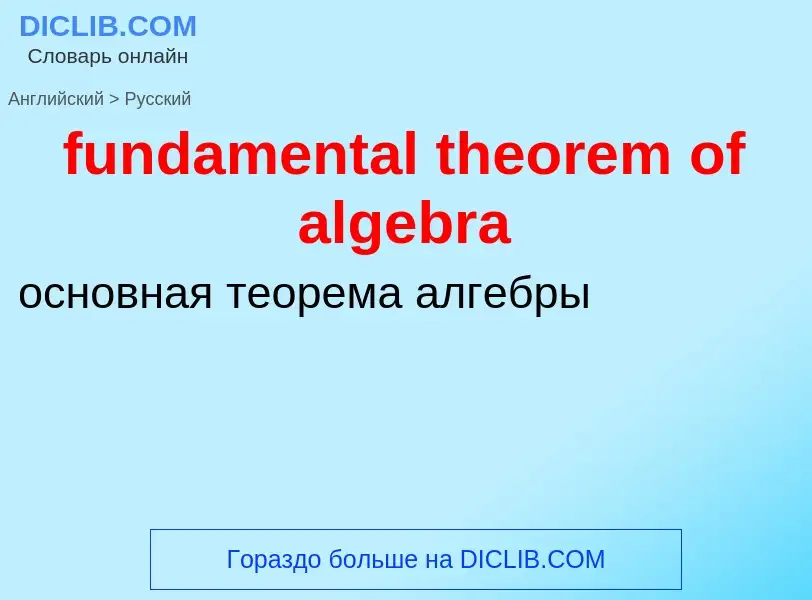Traduction et analyse de mots par intelligence artificielle ChatGPT
Sur cette page, vous pouvez obtenir une analyse détaillée d'un mot ou d'une phrase, réalisée à l'aide de la meilleure technologie d'intelligence artificielle à ce jour:
- comment le mot est utilisé
- fréquence d'utilisation
- il est utilisé plus souvent dans le discours oral ou écrit
- options de traduction de mots
- exemples d'utilisation (plusieurs phrases avec traduction)
- étymologie
fundamental theorem of algebra - traduction vers russe
математика
фундаментальная лемма
математика
основная теорема
Définition
.
Wikipédia
The fundamental theorem of algebra, also known as d'Alembert's theorem, or the d'Alembert–Gauss theorem, states that every non-constant single-variable polynomial with complex coefficients has at least one complex root. This includes polynomials with real coefficients, since every real number is a complex number with its imaginary part equal to zero.
Equivalently (by definition), the theorem states that the field of complex numbers is algebraically closed.
The theorem is also stated as follows: every non-zero, single-variable, degree n polynomial with complex coefficients has, counted with multiplicity, exactly n complex roots. The equivalence of the two statements can be proven through the use of successive polynomial division.
Despite its name, there is no purely algebraic proof of the theorem, since any proof must use some form of the analytic completeness of the real numbers, which is not an algebraic concept. Additionally, it is not fundamental for modern algebra; its name was given at a time when algebra was synonymous with theory of equations.


